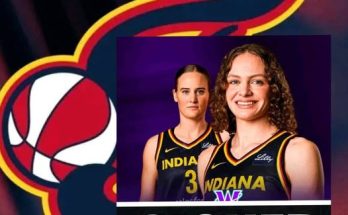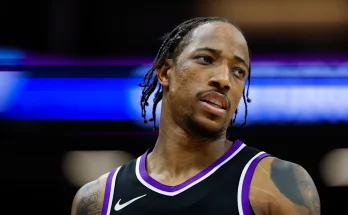Former LSU football star Greg Brooks has officially scored a major victory in court, a moment that not only marks a significant development in his personal battle for justice but also shines a spotlight on broader issues surrounding athlete rights, institutional accountability, and the silent struggles many players face long after the final whistle blows. The win didn’t come easy. It followed months of legal filings, emotional testimony, and a steady current of public support from fans, former teammates, and advocates who believed in his story. For Brooks, this courtroom decision is about far more than legal recognition—it’s about reclaiming his voice, his future, and his dignity.
Brooks’s story is one marked by resilience, heartbreak, and ultimately, vindication. A standout defensive back for LSU, Brooks was known for his tenacity on the field and his leadership in the locker room. His game was defined by grit, intelligence, and the kind of determination that turned him into a fan favorite in Baton Rouge. But away from the roaring crowds and Saturday lights, Greg was fighting a far more difficult battle. After sustaining a serious medical condition during his playing days, Brooks alleged that the university and its medical staff failed to act with the proper urgency and care, ultimately delaying critical treatment that he claims led to lasting consequences.
The lawsuit, which had been slowly moving through the courts, finally reached a key juncture this week. In a ruling that many are calling a landmark moment, the judge sided with Brooks, acknowledging that there was sufficient evidence to support his claim that LSU officials failed to uphold their duty of care. While the full scope of the damages will be determined in future proceedings, this first legal win validates Brooks’s claims and signals that institutions may no longer enjoy the blanket immunity once assumed when it comes to athlete welfare.
This decision could ripple far beyond the LSU football program. For decades, college athletes have expressed concerns about how their health—especially injuries and long-term medical conditions—are handled by team medical staffs. Many athletes feel they are expected to play through pain or pushed back into action too quickly, often at the risk of worsening their conditions. In Brooks’s case, the court’s acknowledgement that there was a failure in duty of care is a powerful affirmation that athletes’ voices matter, and that schools can, in fact, be held accountable for the way they treat their players behind the scenes.
Brooks’s legal team described the ruling as “a victory for every college athlete who’s ever felt neglected, unheard, or disposable.” While Greg remains deeply appreciative of the opportunity LSU gave him as an athlete, he made it clear that his decision to pursue legal action was never about vengeance—it was about accountability. In public statements following the verdict, Brooks maintained a composed yet emotional tone, thanking his supporters and underscoring that no amount of money or media attention could undo the physical and emotional toll the situation had taken. But this legal step, he said, brought a measure of peace and a sense of justice long denied.
The case has also brought renewed attention to the challenges college athletes face when navigating health care systems controlled by their universities. Because players are often required to rely exclusively on school-affiliated medical professionals, there can be a conflict of interest—where the pressures to win and keep star players on the field may override the best medical judgment. Brooks’s situation raises essential questions about whether universities are equipped—or even willing—to prioritize player well-being above the competitive demands of high-stakes college sports.
Legal experts believe that this case could open the door for similar lawsuits from former college athletes who feel their health was mishandled. While schools often operate under layers of legal protection, including liability waivers signed by athletes, this ruling suggests that those barriers are not impenetrable. If a university can be found negligent in its duty of care, then a precedent has now been set—one that future plaintiffs could point to when seeking justice of their own.
There’s also the emotional layer to consider. For Brooks, this wasn’t just a legal process—it was a deeply personal reckoning. He had to revisit painful memories, recount medical appointments where he felt dismissed, and relive the moment he realized something was seriously wrong but no one seemed to be listening. Those who followed his story closely know that Brooks has shown incredible strength, not only as an athlete, but as a young man demanding to be treated as more than a number on a depth chart.
As word of his victory spreads, support for Brooks has poured in from all corners of the sports world. Former teammates have praised his courage, LSU alumni have voiced their solidarity, and even athletes from rival schools have commended him for standing up for what’s right. Advocacy groups for athlete rights have already pointed to this ruling as a wake-up call, urging schools across the country to reevaluate their internal medical protocols and ensure that players are being treated with the urgency and respect they deserve.
Still, the road ahead remains long for Brooks. This legal win is an important milestone, but it doesn’t erase the physical pain he still endures or the emotional scars that came from feeling let down by a system he trusted. He remains under medical care, and while progress has been made, he continues to deal with the lasting effects of the medical condition that triggered this legal battle in the first place. His recovery is ongoing, and so is his mission to create lasting change.
This courtroom win also comes at a time when the broader conversation about college athletes’ rights is reaching a fever pitch. With the rise of NIL (name, image, and likeness) deals and increased scrutiny over how billions in revenue are generated off student-athletes, Brooks’s story adds yet another layer of urgency to the push for reform. If athletes are expected to perform at the highest level—and help generate massive profits in the process—they must also be protected, respected, and heard when things go wrong. The era of silent suffering needs to end, and cases like Brooks’s could be the catalyst for a new, more compassionate era in college sports.
Brooks has made it clear he doesn’t see himself as a victim, but rather as a voice for the voiceless. In interviews, he’s spoken about the importance of sharing his experience not just to get closure, but to make sure no one else has to go through what he did. He hopes his story will prompt other athletes to speak up and challenge systems that fail them. And with this court ruling in his favor, he now has a powerful legal precedent to back that message up.
As the legal proceedings continue, including potential settlement discussions or even a jury trial for damages, one thing is clear—Greg Brooks has already won something far more valuable than a monetary award. He has won back his voice, his confidence, and the ability to inspire change in a world that often prioritizes wins and losses over human well-being. His battle has highlighted the human side of college athletics, a world where players are often deified on Saturday but forgotten by Sunday if they can no longer perform.
Greg Brooks’s journey is far from over, but this moment represents a powerful chapter in that journey. It’s a reminder that behind every jersey is a human being, and behind every game are real lives affected by decisions made in training rooms and boardrooms. Brooks may no longer be chasing interceptions on the football field, but he’s intercepted something far more meaningful—the attention of a nation finally beginning to listen.



